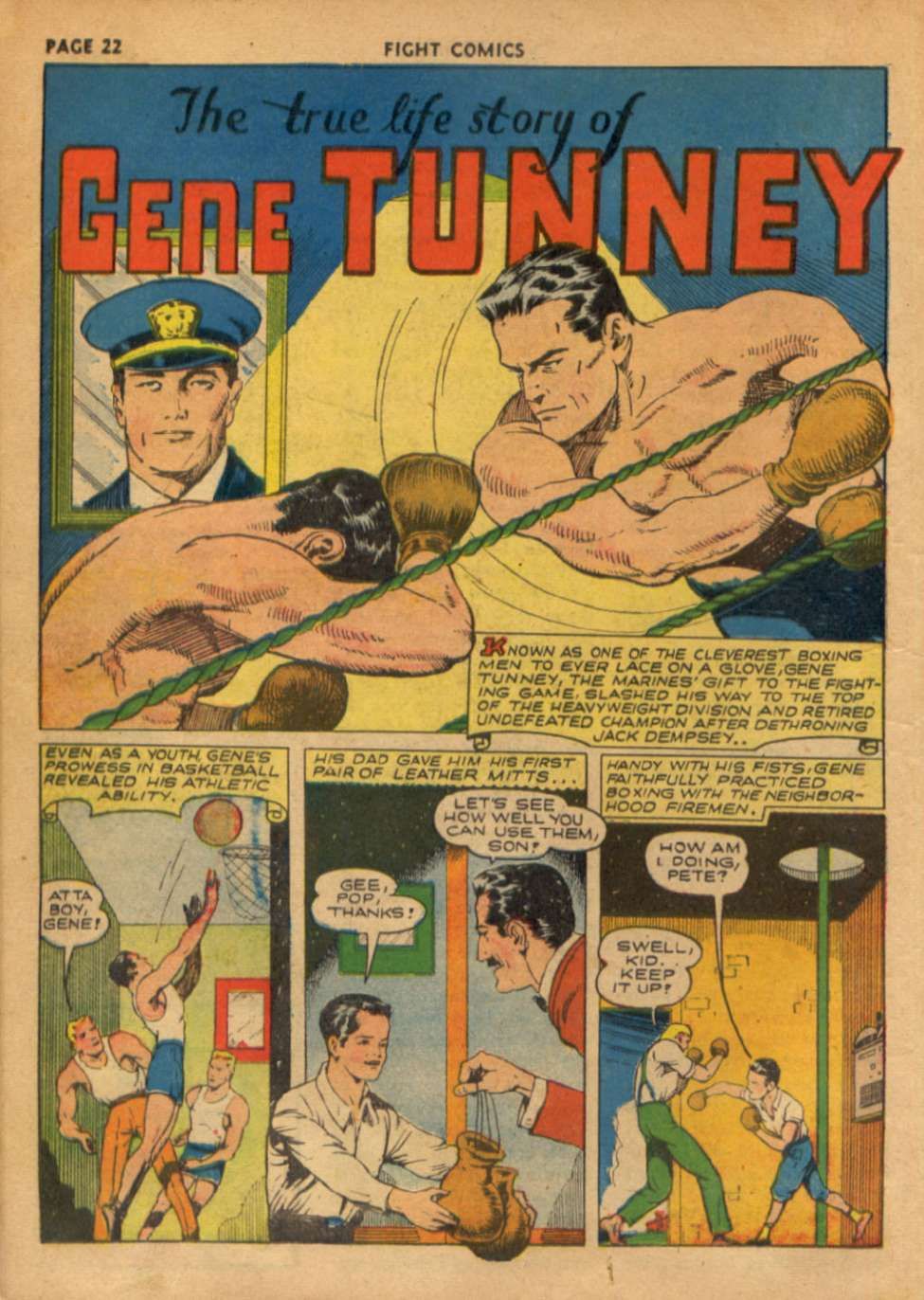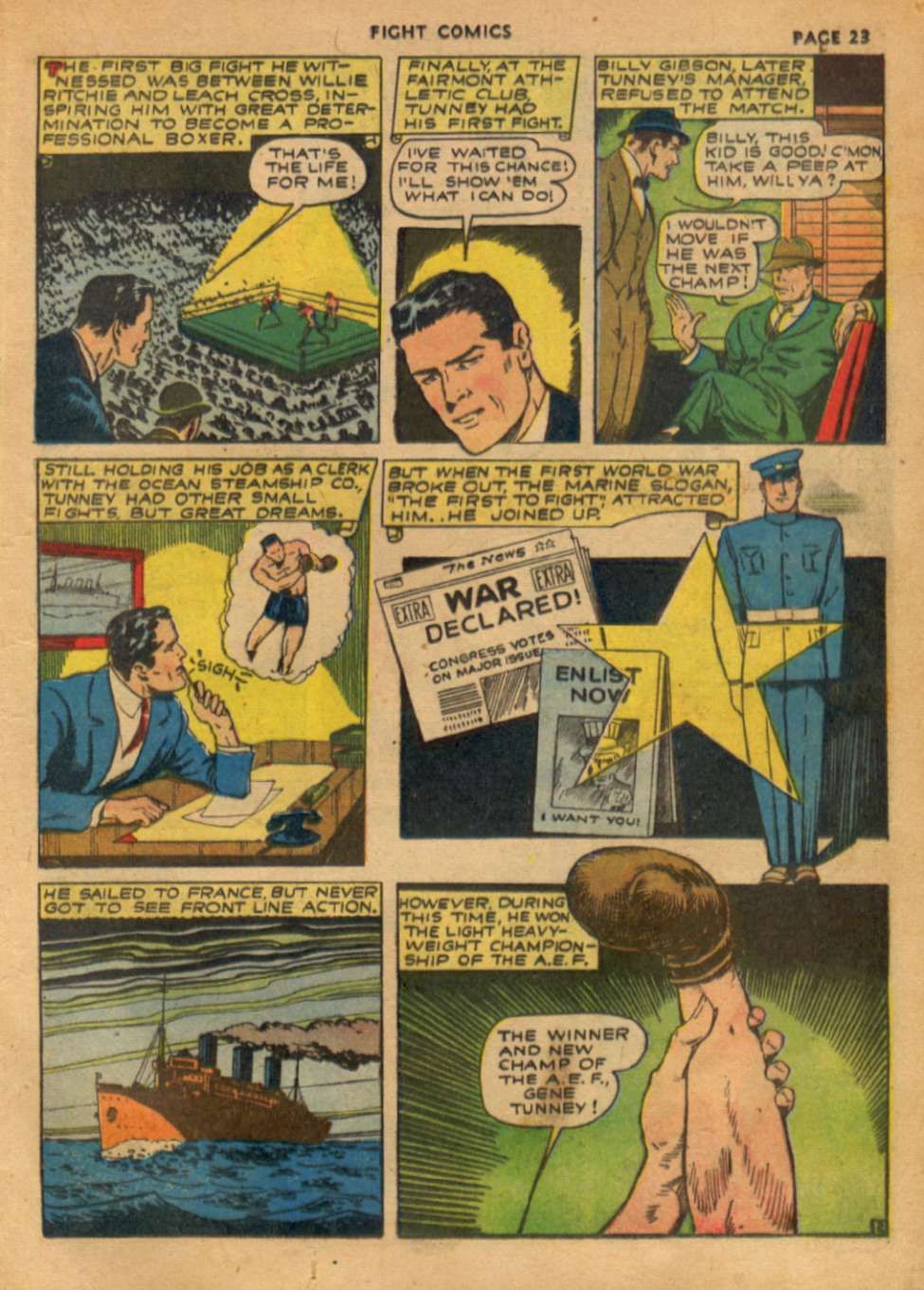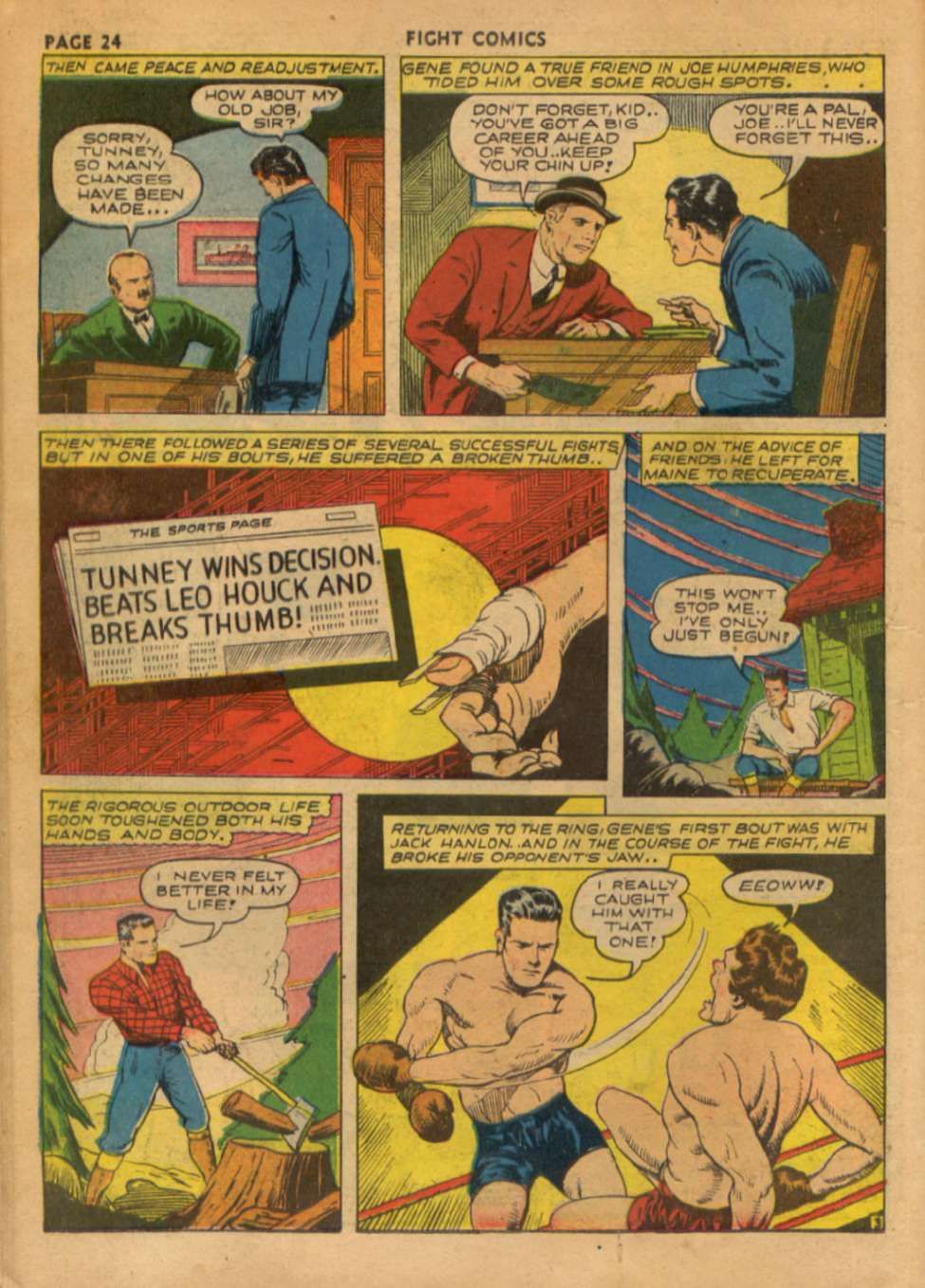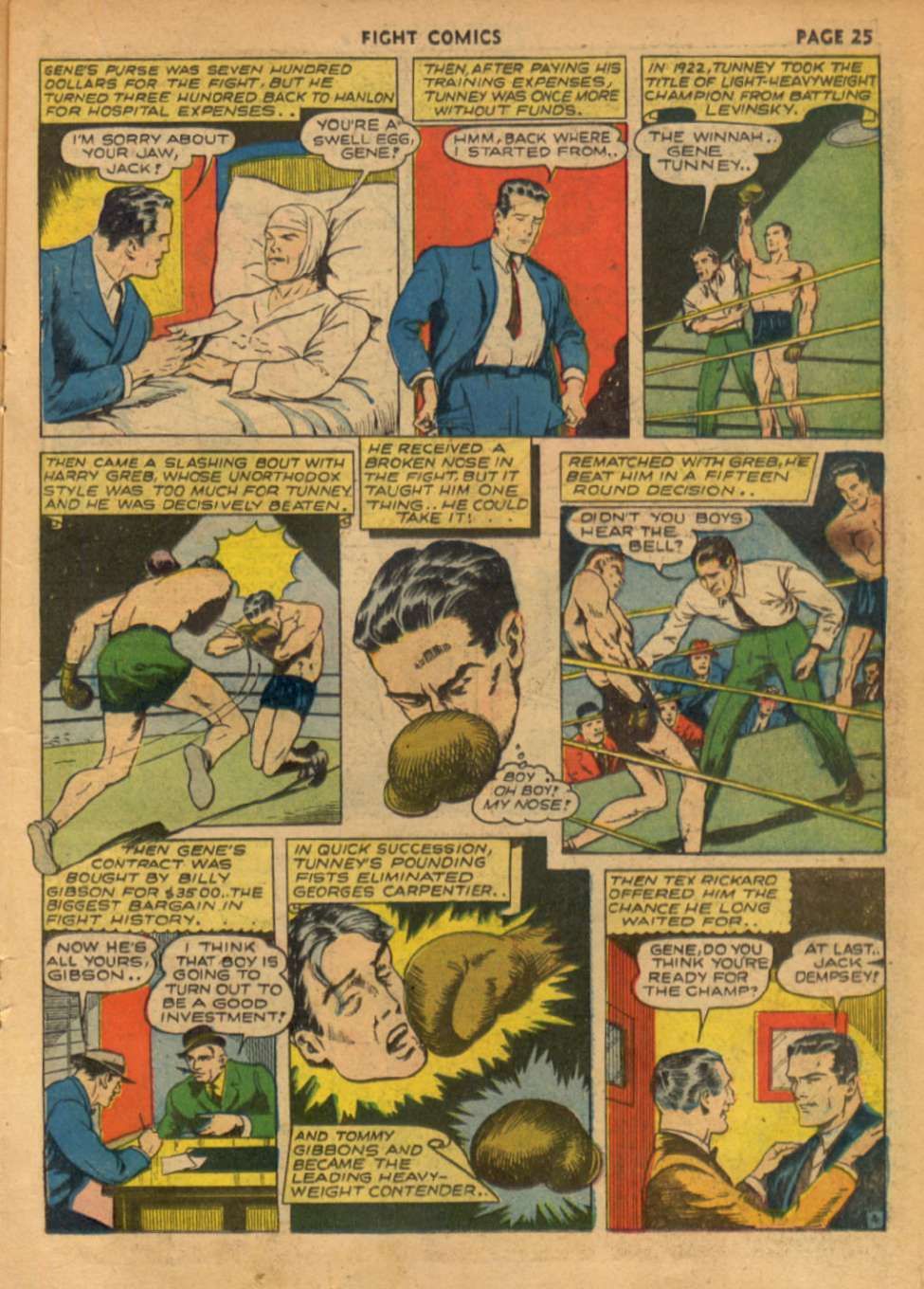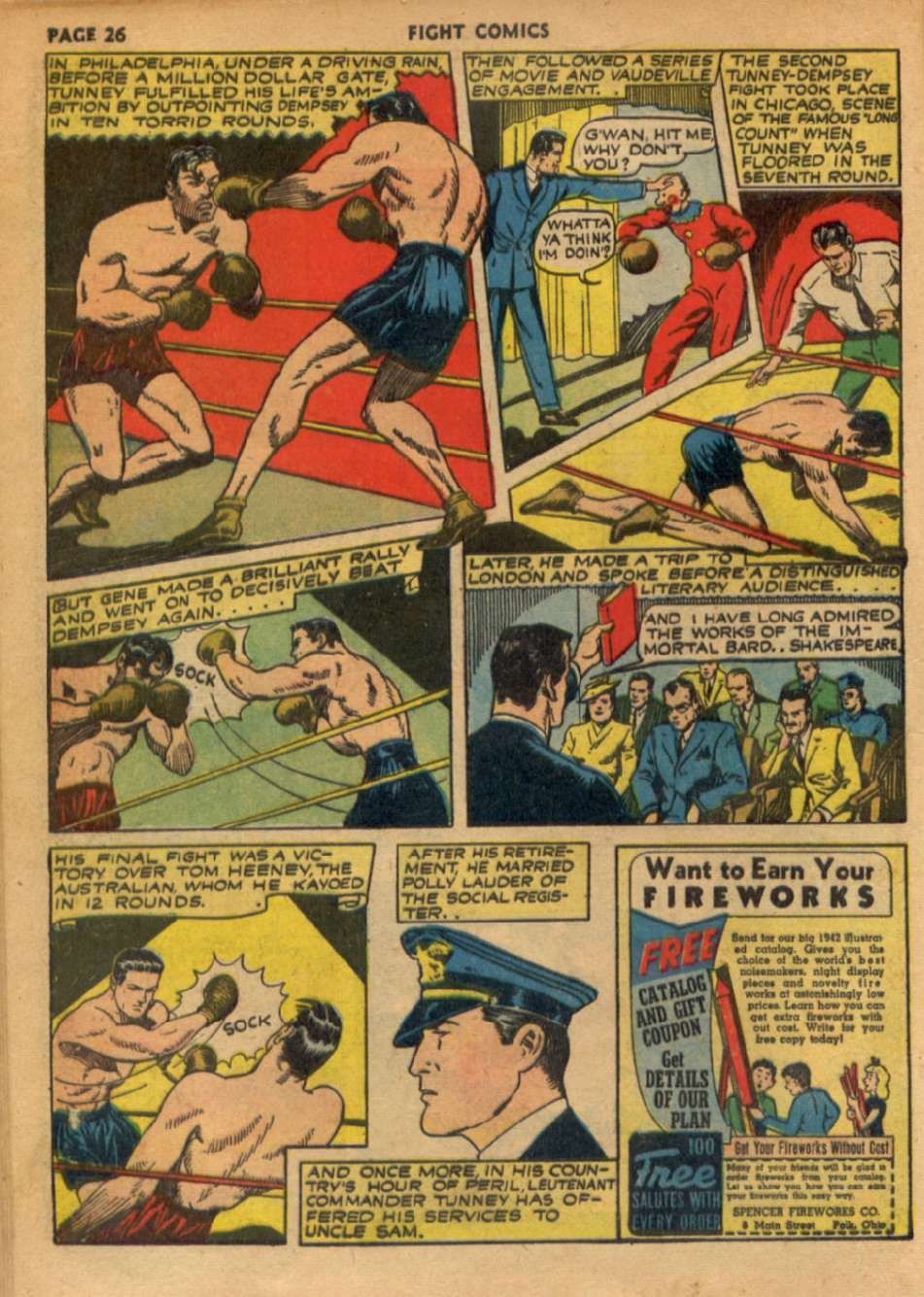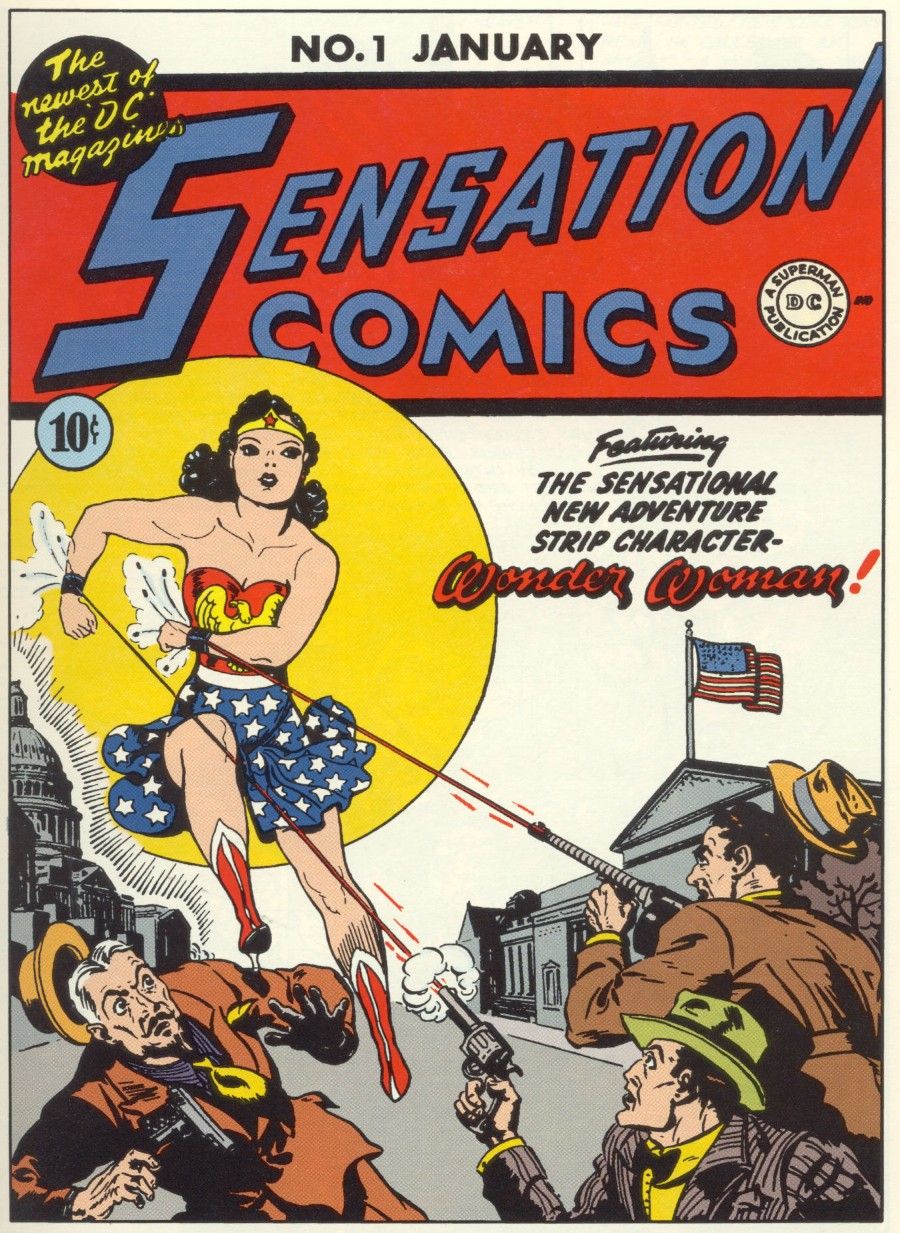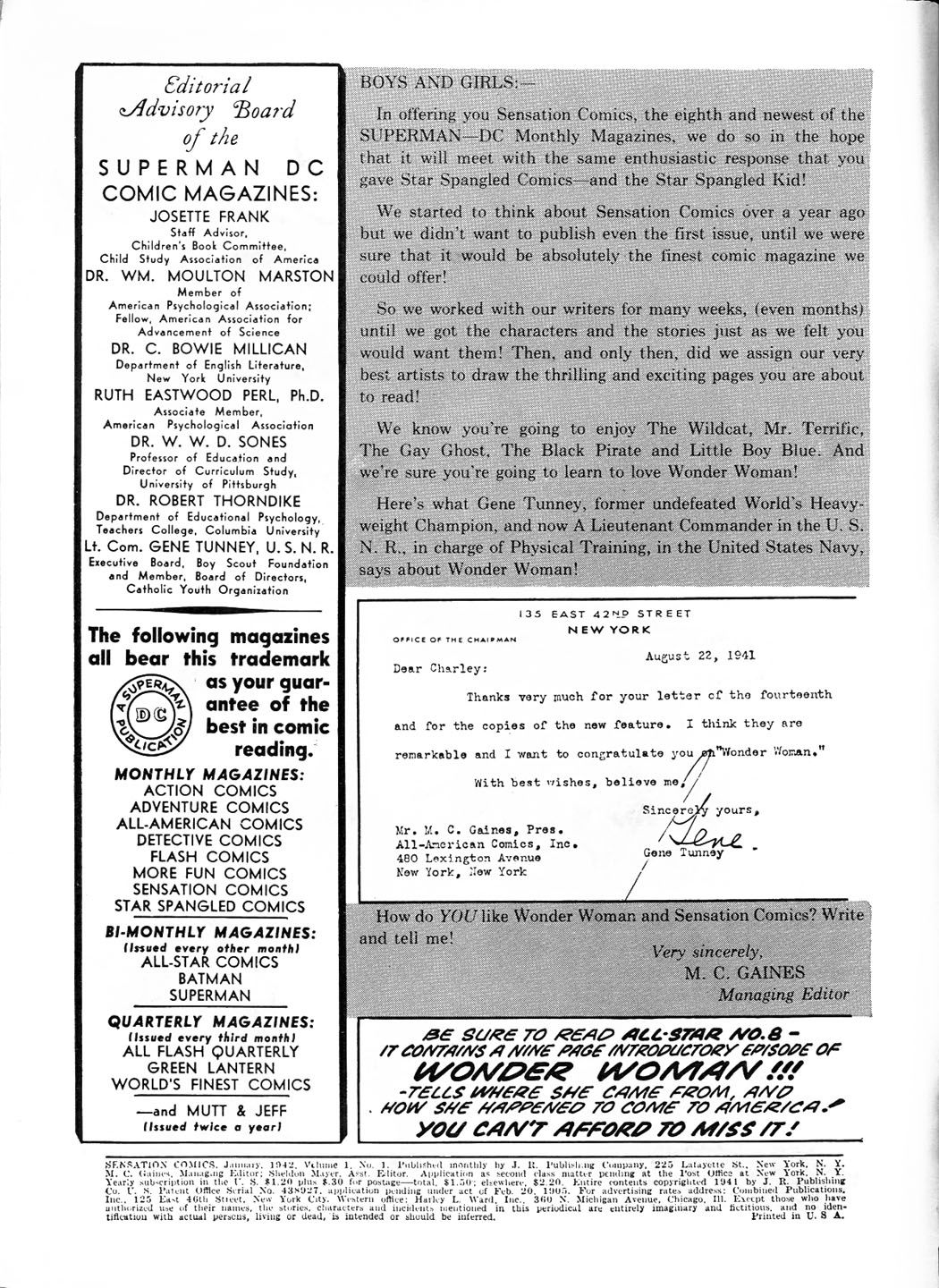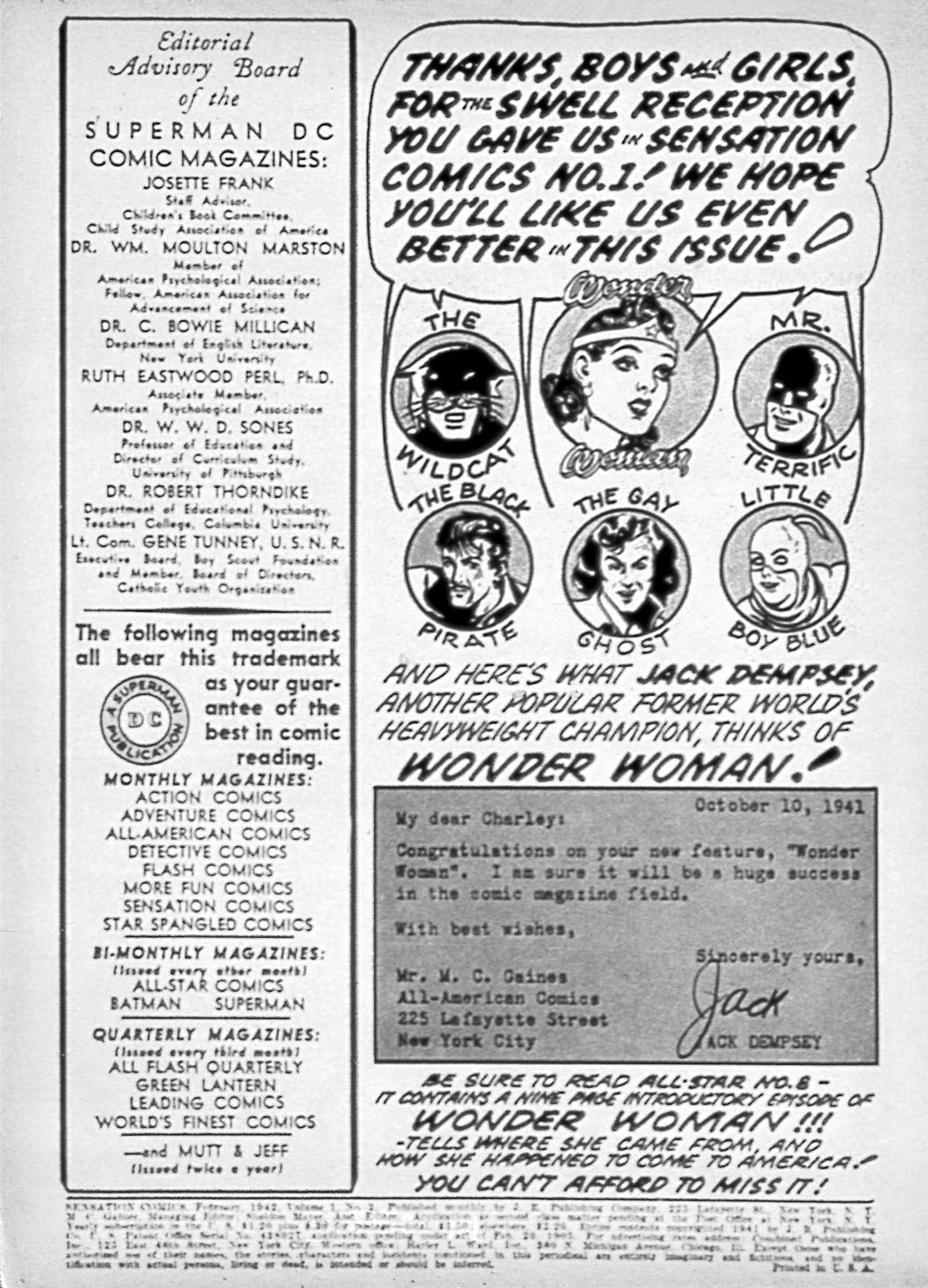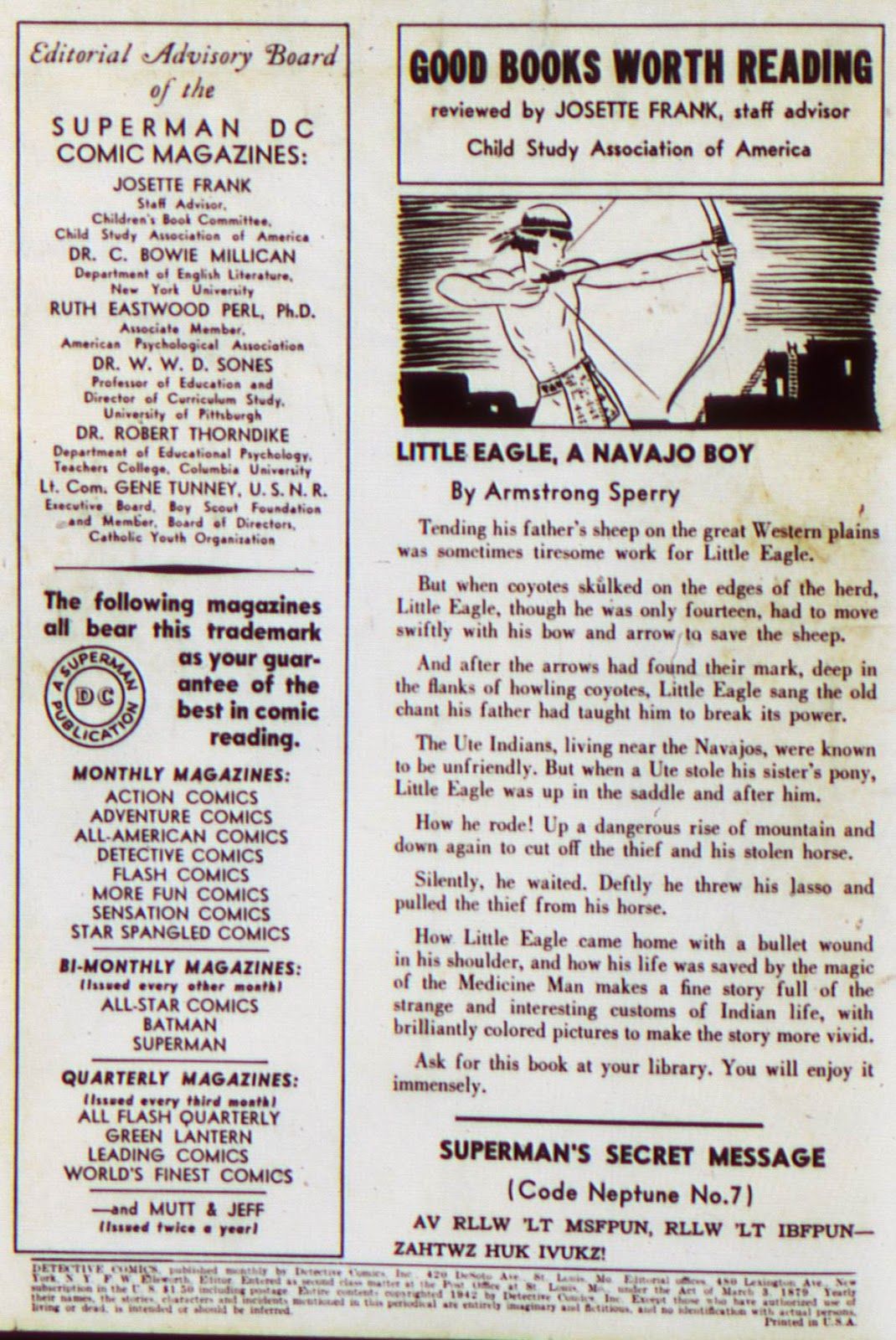This is Foggy Ruins of Time, a feature that provides the cultural context behind certain comic book characters/behaviors. You know, the sort of then-topical references that have faded into the “foggy ruins of time.” To wit, twenty years from now, a college senior watching episodes of "Seinfeld" will likely miss a lot of the then-topical pop culture humor (like the very specific references in “The Understudy” to the Nancy Kerrigan/Tonya Harding scandal).
Today, we look at the fairly forgotten impact that Gene Tunney, Heavyweight Champion of the World from 1926-28, had on the early days of DC Comics.
Now, boxing is quite popular in America today, but back before World War II, it was ridiculously popular. It was the second most popular sport in the United States behind baseball, and due to the singular nature of the sport, the most famous boxers were even more famous than the most famous baseball players. As world-famous as, say, Babe Ruth was, Jack Dempsey (Heavyweight Champion of the World from 1919-1926) was even MORE famous (and that was reflected in their salaries, as well, with Ruth making close to $100,000 at his peak while Dempsey was taking in close to $400,000).
As a result, you will see a good deal of comic books about boxing in the 1940s. Boxing legends would routinely be featured in stories in comic books and Gene Tunney was no exception. Here is an encapsulation of his life by the great Alex Baum (who worked with Will Eisner in the early days of the Eisner-Iger packaging studio)...
As the comic story alludes to at the end, Tunney was famous for how LITERATE he was. In his famous title match against Jack Dempsey, there is a classic quote where one of Dempsey's guys expressed a lack of concern for Dempsey's chances against Tunney because, after all, "Tunney? He reads books."
Tunney owned a collection of William Shakespeare's plays from the 17th Century! I don't believe it was the FIRST published volume of Shakespeare's plays (which was in 1623), but it was still a pretty darn old collection either way!
Therefore, it made perfect sense for Max Gaines to turn to Tunney for an endorsement of the newest comic book in Gaines' All-American Publications line of books (a subsidiary of National Comics, now DC Comics)...
Sure enough, in the first issue of Wonder Woman's ongoing series, Sensational Comics (after she had a preview story in All-Star Comics #8), Tunney wrote a letter of support...
Amusingly, Jack Dempsey then wrote a letter of support for the SECOND issue of the series!
Now, early on in the history of comics, the various comic book companies were worried about outside reaction to the content of comics. No company was more worried than National, which was the leading comic book company and thus had the most to lose. So very early on, National stressed the educational aspects of their comics and as part of that, they enlisted the help of an Editorial Board made of respected people, including, sure enough, Gene Tunney!
It was all PR, and these people mostly just lent their names to the board rather than really doing anything, but it was still a big boon to the early days of comics.
If anyone else has a suggestion for a future edition of Foggy Ruins of Time, drop me a line at brianc@cbr.com!


